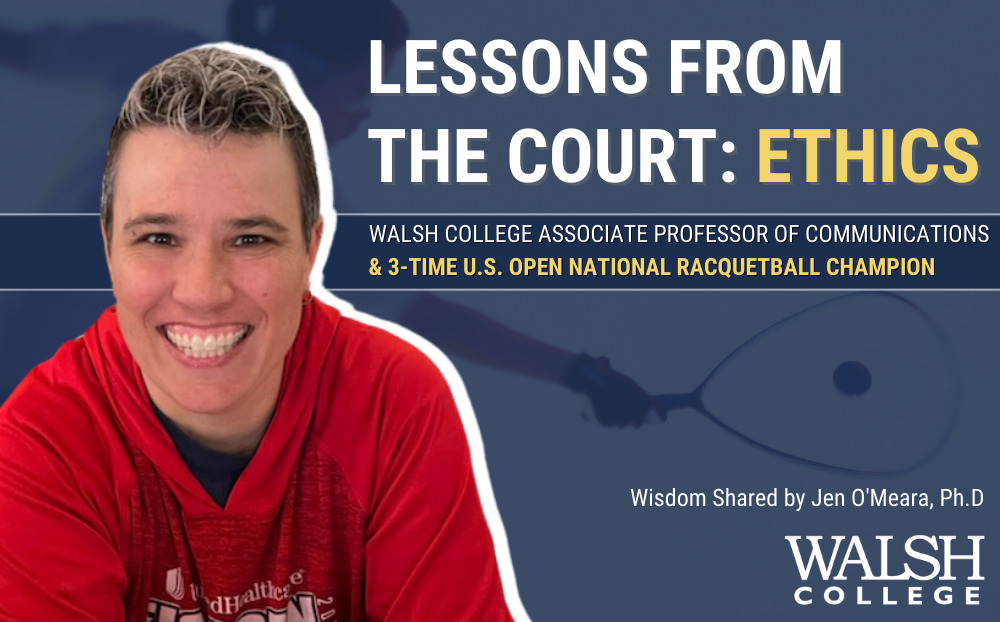Lessons From the Court: Ethics
By: Jen O’Meara, Ph.D.
Fairness in racquetball requires good sportsmanship. We do use referees, but the referee is outside of the court, which means that the players are often the only ones in position to make correct calls. Good sportsmanship sometimes requires us to make tough calls against ourselves, even when they cost us the point, the game, or even the match.
In this way, good sportsmanship is a lot like ethics. The business world often leaves it up to us as individuals to act ethically — to call out injustice or wrongdoing, to behave in accordance with the expectations of organizational culture, and to abide by the code of conduct of professional societies. Nobody is watching over our shoulders every minute of every day. We are responsible for our own behavior, and behaving ethically is a good path toward earning the respect and admiration of our colleagues.
I personally witnessed this benefit of ethical behavior at the 2022 US Open. A player from Michigan was battling a player from Texas in the second round of the pro qualifier division. I was in the front row, cheering for my friend from Michigan; a man from Texas was seated next to me, cheering likewise for his friend. Game One was tied at 14-14. The player who scored the next point would be one game up in the two-out-of-three matchup.
The player from Texas eventually won the fifteenth point, but an objection was immediately raised by the player from Michigan, who said that he had been screened by his opponent. The referee ultimately denied the Michigan player’s appeal, and player from Texas was declared the winner of the game.
The spectators immediately began to chatter as the players came out of the court. The Texas player, sensing that something was amiss, approached his friend sitting next to me and asked if he had indeed screened his opponent. Consulting with his friend was Good Sportsmanship Exhibit 1: the player understood and acknowledged that there are multiple perspectives in every situation. The man sitting next to me then displayed Good Sportsmanship Exhibit 2: he told his friend that yes, he did think the play was in fact a screen. The player from Texas then enacted Good Sportsmanship Exhibit 3: he grabbed his opponent, headed back onto the court, and told the referee that they were going to replay the last point.
All of this unfolded in less than ten seconds, but it is a scenario that I will never forget. The player from Texas had already been declared the winner of the game, and so did not have to ask for his friend’s perspective. His friend did not have to be honest: he could have easily agreed with the referee, and that would have been the end of the discussion. And finally, even knowing that the play may have been a screen, the player from Texas certainly did not have to retake the court with his opponent. All three actions were remarkable.
The desire to win in sports and to get ahead in business can be immense. It is important to understand, though, that there is no “winning” with poor sportsmanship or questionable ethics. People will not remember your “win” on the court; they will instead remember that you were a poor sport who didn’t have the ethics to make the right call or do the right thing. Ethical conduct, on the other hand, is in many ways its own reward. I, for one, will always remember that Texas player for his ethical behavior and exemplary sportsmanship.
Jen O’Meara is an Associate Professor of Business Communications and a 3-time US Open national racquetball champion.







